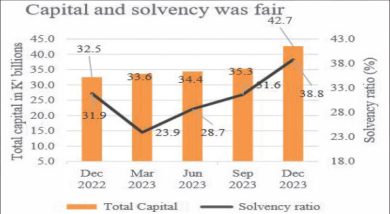AHL Group firm on IPS opposition
Newly rebranded AHL Group has remained firm on its opposition to Integrated Production System (IPS) of growing tobacco, accusing authorities for rushing to implement the “imported” concept without assessing its implications on ordinary tobacco growers.
However, Malawi’s second largest tobacco body, Phindu Tobacco Growers Association, which earlier sued former president Joyce Banda administration for approving IPS, has backtracked and now says it fully supports the system as it is benefiting most of its members.

“Under contract farming, buyers and growers are able to interact and; hence, we support it fully as Phindu Association because it has changed the livelihood of our farmers. It is the way to do tobacco business,” said Abel Kumwenda, the association’s president.
The stance by AHL Group comes against the backdrop of Minister of Agriculture, Irrigation and Water Development Allan Chiyembekeza backing IPS, arguing the quest for quality leaf stands to benefit farmers.
The minister, speaking during a visit of tobacco growers in Mzimba and Rumphi last week, said government has no plans to abolish the system, as there appears to be a problem of perception.
“Everywhere I have gone, the farmers themselves say they are happy with the system, that it is benefiting them. Their crop looks much better than what you see in fields owned by standalone farmers,” he said, stressing that no farmers is pushed to join IPS.
But speaking in an interview in Lilongwe, AHL Group chief executive officer Evans Matabwa said Malawi rushed to adopt the IPS model from Brazil when the structure of tobacco industry in the two countries are different.
“In Brazil where they do IPS 100 percent, agriculture is probably number four as an industry in terms of the ranking and within agriculture, tobacco comes number eight if not nine. Overall, tobacco in Brazil contributes only two percent of gross domestic product (GDP),” he said.
The three-year-old system, in which buyers offer farmers necessary inputs, extension services and loans, ensures that 80 percent of tobacco is sold through IPS, with the remaining 20 percent sold under auction system, whose structures are controlled by AHL Group.
“What we have seen, however, is more of a push and perhaps not much time has been given to farmers to assess what benefits or problems the system has brought,” said Matabwa, adding that there had not been adequate involvement of tobacco growers when adopting IPS.
Matabwa warned that it is extremely dangerous to bring in a system without putting up proper legislative structures aimed at protecting all stakeholders in the system.




